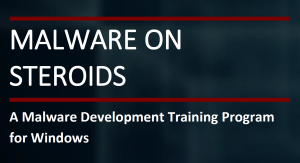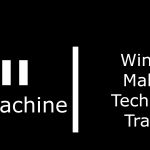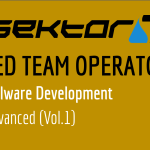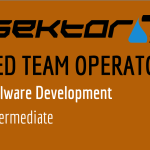
The Malware On Steroids is the first course which is dedicated to building your own C2 Infrastructure and Payload. There are a lot of courses which focus on exploitation, reversing and other offensive stuff, but none of them focus on how you can build your own Command & Control Infra. This course focuses on a brief introduction towards Windows Internals followed by a full hands-on course on building a Command & Control architecture with different types of Initial Access payloads.
During the course, you will learn the core fundamentals of a Malware Lifecycle such as initial access, in-memory evasions, different types of payload injections including but not limited to reflective DLLs, shellcode injection, COFF injections and more. You will learn to build different types of remote access tools running over different protocols which we will later convert to in-memory modules that can be injected to any process. We will also write dropper and stagers in x64 Assembly, C and different LOLbins which will connect back to our CnC to extract the second stage and load it into memory for execution.





